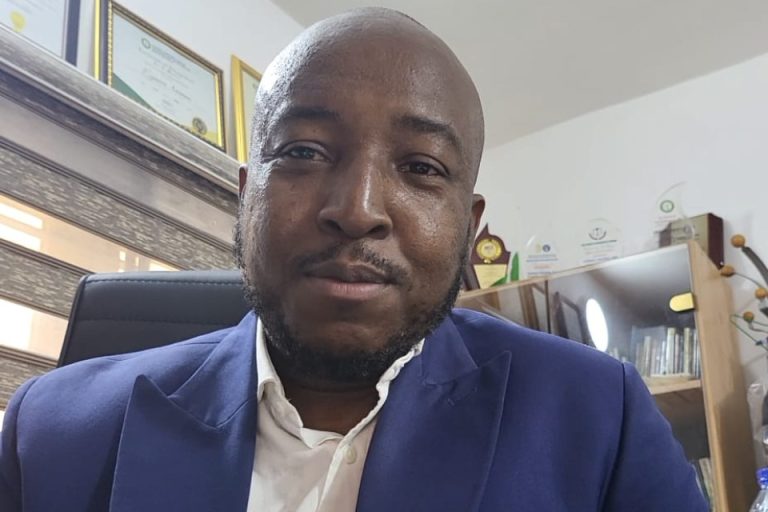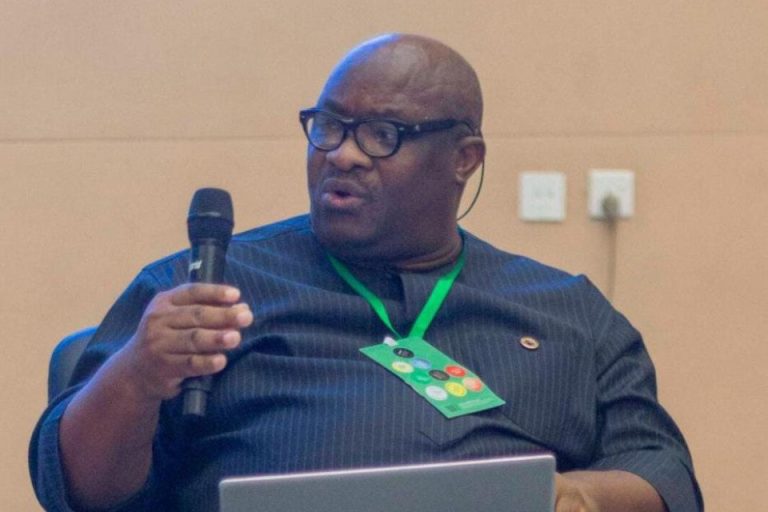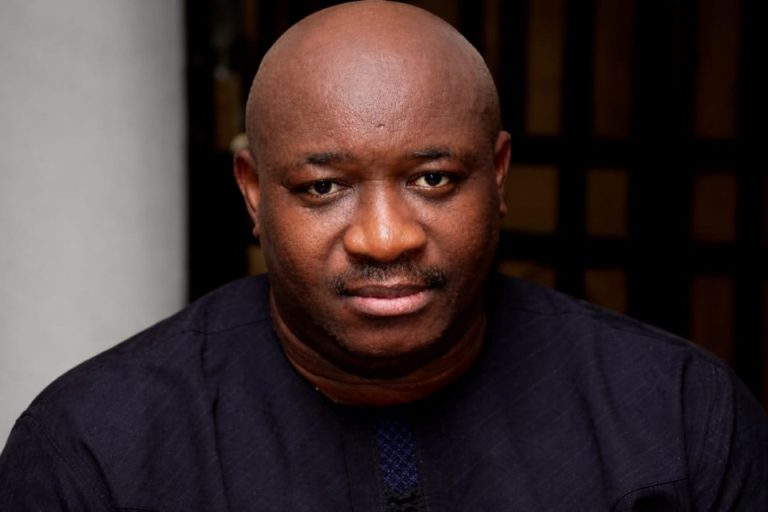
Media Rights Agenda (MRA) has joined 80 other human rights organizations and coalitions from around the world, led by the Global Forum for Media Development (GFMD), to call on the United Nations (UN) and its Member States to ensure robust commitments to access to information, media freedom, and public-interest journalism as they negotiate the final text of the “Pact for the Future”, the main outcome document of the Summit of the Future, a high-level event that seeks to reaffirm existing UN Member State commitments, scheduled to take place in New York in September 2024.
In a statement signed by 81 organizations and coalitions as at July 24, they highlighted the importance of integrating specific, strong language into the Pact for the Future to ensure that it reinforces existing commitments by UN Member States “on access to information and media freedom and empowers public-interest journalism and resilient information ecosystems to play their vital role in delivering on the promise of a better future for all.”
The organizations noted the “severity of challenges facing media and journalists around the world, which in many contexts nears an extinction-level event”, and stressed the importance of access to information and freedom of expression in empowering people to address their shared needs.
They therefore called on the UN and Member States to further strengthen their commitments, in line with Article 19 of the Universal Declaration of Human Rights and several other instruments.
The Summit of the Future is a high-level event billed as a “once-in-a-generation” opportunity that seeks to reaffirm existing UN Member State commitments, including the UN Charter, the Universal Declaration of Human Rights, and the 2030 Agenda, as well as address challenges such as extreme poverty, climate change, and new technologies.
The Pact for the Future is the Summit’s primary outcome document, intending to boost the implementation of the Sustainable Development Goals as the roadmap for overcoming crises and securing a better future for all.
The full text of the Statement and signatories is as follows:
GFMD and the undersigned organisations welcome the second revision of the Pact, including its attention to the Sustainable Development Goals as well as strong language on human rights. We particularly applaud the explicit reference to protecting civic space (Action 13); a commitment to protecting journalists and media professionals during armed conflict (Action 14); and the inclusion of respecting the right to freedom of expression while addressing disinformation and misinformation (Action 36).
.
Given both the severity of challenges facing media and journalists around the world, which in many contexts nears an extinction-level event, and the utmost importance of access to information and freedom of expression in empowering people to address shared needs, we call on the UN and Member States to further strengthen their commitments, in line with Article 19 of the Universal Declaration of Human Rights; the General Comment on Article 19: freedoms of opinion and expression; the 1991 Windhoek Declaration; and the 2021 Windhoek+30 Declaration: Information as Public Good, and in fulfilment of target 16.10 of the Sustainable Development Goals and the UN Global Principles for Information Integrity.
As underscored in a joint statement by the Presidents of the UN General Assembly, the General Conference of the UN Educational, Scientific and Cultural Organization (UNESCO), the UN Economic and Social Council (ECOSOC), and the UN Human Rights Council on World Press Freedom Day 2024: “the media’s role as a watchdog, and a catalyst for action cannot be overstated.”
“Access to accurate and timely information, enabled by a free, independent, and pluralistic media, stands as a cornerstone for raising public awareness, fostering informed debate and decision-making, countering misinformation and disinformation, and ultimately galvanizing collective action towards the attainment of the Goals, in the 2030 Agenda for Sustainable Development… As we navigate the final years to achieve the Sustainable Development Goals, we call on Member States and all stakeholders to reaffirm their commitments to the fundamental rights of freedom of expression and access to information.”
We therefore urge the UN and Member States to incorporate the following language into the Pact for the Future:
In the Chapeau include: “We affirm that access to information, freedom of expression and media freedom, including the safety of journalists, the vibrancy and viability of public interest media, and the resilience of a healthy, autonomous information ecosystem, are fundamental for advancing the entirety of the Sustainable Development Goals”.
Under Action 7 add “Promote and protect media freedom and public-interest journalism, as no crisis or challenge – whether health, climate, economic, political, or humanitarian – can be addressed without access to reliable information and information integrity at its core”.
Under Action 18, paragraph 36(h), add “in accordance with the Global Principles for Information Integrity and its emphasis on the role of independent, free and pluralistic media”.
Under Action 24, paragraph 42(b), add “in accordance with international law” so that these measures are not abused to limit civic space.
Under Action 29, paragraph 47(b), add “access to information” before “delivery of public services”.
Under Action 47, paragraph 71, add “including journalists and activists” after “Human rights defenders”.
Incorporating the recommended language above will help ensure that the Pact for the Future reinforces existing commitments on access to information and media freedom and empowers public-interest journalism and resilient information ecosystems to play their vital role in delivering on the promise of a better future for all.
As UN Secretary-General António Guterres highlighted in his message for World Press Freedom Day: “Without press freedom, we won’t have any freedom. A free press is not a choice, but a necessity.”
Signatories:
- 2402 Foundation – Ukraine
- Afghanistan Journalists Center (AFJC) – Afghanistan
- Africa Freedom of Information Centre – Uganda
- African Youth Cafe – Kenya
- Agencia Mural de Jornalismo das Periferias – Brazil
- Al-Jumhuriya Collective – Syria
- Asian American Journalists Association (AAJA) – United States
- Association for Media Development In South Sudan (AMDISS) – South Sudan
- Association of Caribbean Media Workers (ACM) – Trinidad and Tobago
- Bangladesh NGOs Network for Radio and Communication – Bangladesh
- BBC Media Action – United Kingdom
- Beam Reports – Sudan
- Belarus in Focus Information Office – Poland
- Bytes for All – Pakistan
- Cambodian Center for Human Rights – Cambodia
- Cambodian Journalists Alliance Association – Cambodia
- Canal France International (CFI) – France
- Center for Independent Journalism – Hungary
- Center for Journalism Studies (CEPER) at Universidad de los Andes – Colombia
- Centre for Law and Democracy – Canada
- Centre for Media Freedom – Morocco
- Comité por la Libre Expresión – Honduras
- Commonwealth Journalists Association – United Kingdom
- Community Media Network – Jordan
- Daily Nawa-I-AhmedPurSharqia – Pakistan
- Daily Rozan Gujrat – Pakistan
- Digihub Africa – South Africa
- DW Akademie – Germany
- European Journalism Centre – Netherlands
- El Surtidor – Paraguay
- Fiquem Sabendo – Brazil
- Fondation Hirondelle – Switzerland
- Forum on Information and Democracy – France
- Free Press Unlimited – Netherlands
- Freedom Forum – Nepal
- Freedom of Expression Institute – South Africa
- Fundación para la Libertad de Prensa (FLIP) – Colombia
- Gambia Press Union (GPU) – Gambia
- Gender and Media Connect – Zimbabwe
- GIBS Media Leadership Think Tank – South Africa
- Global Forum for Media Development (GFMD)
- Global Media Registry – Germany
- Global Youth & News Media – France
- Globe International Center – Mongolia
- Group Siyabonga Gold – Benin
- Home News Agency – Kenya
- Human Rights Network for Journalists – Uganda
- International Center for Journalists – United States
- International Fund for Public Interest Media (IFPIM) – France
- International Media Support – Denmark
- International Press Centre – Nigeria
- International Press Institute – Austria
- Internews – United States / United Kingdom
- Maharat Foundation – Lebanon
- Media Development Investment Fund – United States
- Media Diversity Institute – United Kingdom
- Media Foundation for West Africa – Ghana
- Media Monitoring Africa – South Africa
- Media Rights Agenda – Nigeria
- Media Voice – Media and Communication Educational and Research Center – Georgia
- Mizzima Media – Myanmar
- Muwatin Media Network – United Kingdom
- National Union of Journalists of Ukraine – Ukraine
- New Narratives – United States
- Palestinian Center for Development and Media Freedoms (MADA) – Palestine
- Panos Institute Southern Africa – Zambia
- Press Union of Liberia – Liberia
- Public Media Alliance (PMA) – United Kingdom
- Roma Active Albania – Albania
- R3D: Red en Defensa de los Derechos Digitales – Mexico
- Radio Espace Guinée – Guinea
- Reporters Without Borders (RSF) – France
- Rural Media Network Pakistan – Pakistan
- SAARC Journalist Forum – South Asia
- SembraMedia – United States
- Sifter – Ethiopia
- Somali Media Women Association (SOMWA) – Somalia
- South East Europe Media Organisation (SEEMO) – Austria
- Syrian Center for Media and Freedom of Expression (SCM) – France
- WELTFILME – Germany
- World Association for Christian Communication (WACC) – Canada / United Kingdom




